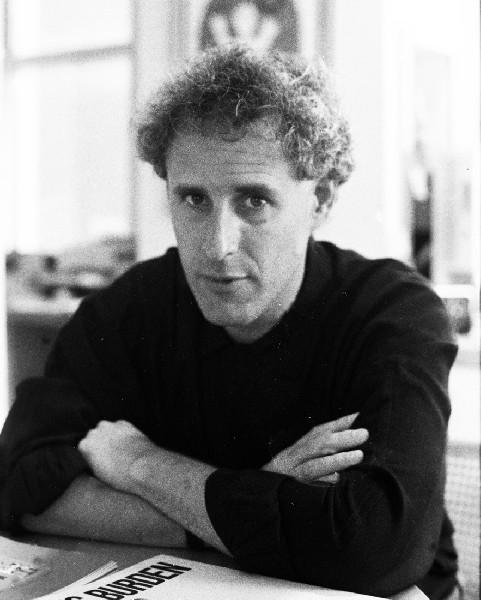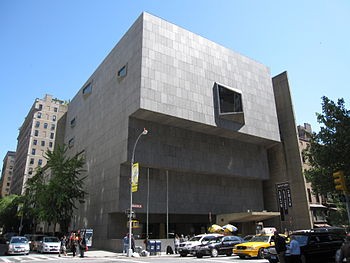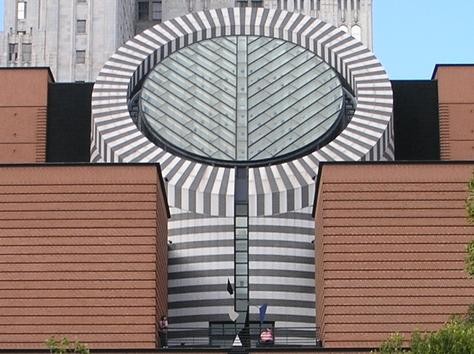David A. Ross Part Three
Hits and Misses of a Former Museum Director
By: David Ross and Charles Giuliano - Nov 22, 2011
Charles Giuliano To what extent was fundraising an aspect of your job as director of the Whitney Museum?(NY Times, March 29, 1998, Michael Kimmelman)
David Ross For a museum director it defines your job. Period. You are responsible. Period. Whether you’re director of the Whitney, SF MoMA, ICA. Raising the money to meet your ambition level is your job. You can lower your ambition level and hang out. Or you can have ambitions which you communicate to your board and community. Then you go out and lead the fund raising effort. You don’t have to do all of it. That’s why you have trustees. They can open doors and at times help make deals. You work with them and others. If you’re in a university you work with alumni. At the Whitney you work with trustees. You work with artists. You work with dealers. You work with anybody. You work with governments. You think entrepreneurially. You’re running a business. You’re the director. You’re the CEO. It’s your job. You don’t go around (whining) saying “Nobody gave me any money. Oh, I can’t do anything. I’m a poor museum director.” Then you’re not a museum director. You’re a curator. Then you’re just a wuss. I don’t know what it is. I can’t stand hearing people complain that they don’t have money. When I was at the Long Beach Museum as first year deputy director the budget I was given was $2,000. So I went out and raised $100,000 from various sources and did shows. I didn’t want to just sit around. What was I going to do with $2,000?
CG Your legacy is that you were director of two institutions (ICA and Whitney) in which you failed to close the ultimate deal which was to expand the institutions.
DR I didn’t fail. I did exactly what I wanted to do at the Whitney. I built out the fifth floor and moved the offices to an adjoining building. And built a new library. That was it. I was not a fan of the Whitney expanding any further. We did just what I wanted. We built our endowment. We doubled the endowment at the Whitney. We paid for the fifth floor build out. We paid for the new annex. We paid for the new library. With no debt and that was that.
CG Why did you leave the Whitney?
DR I was romanced by SF MoMA (San Francisco Museum of Modern Art) to come and build their collection. They doubled my salary and offered this enormous amount of money to build their collection. It was an extraordinary opportunity. Once in a lifetime. I think it was a mistake to leave, by the way, at the end of the day. Looking back on my career. I loved what I got to do. I enjoyed it. But I still loved the Whitney Museum.
CG How long were you with the Whitney and how many years in San Francisco.
DR I was with the Whitney nine years (actually seven) and just a little under four at San Francisco. I was fired at San Francisco. It was a tough ending.
CG Would you care to elaborate on that?
DR No more than is already on the record. We had a four year honeymoon and then an over night divorce.
(Carol Vogel reporting in the New York Times, March 14, 2002 wrote that “After a seven-month search, the San Francisco Museum of Modern Art has named Neal Benezra as its director. Mr. Benezra, who has been the deputy director and curator of modern and contemporary art at the Art Institute of Chicago, succeeds David A. Ross, who left the museum abruptly after a whirlwind three years in which he spent $140 million building the museum's collection of contemporary art.
''David was the right person at the time,'' said Elaine McKeon, chairwoman of the museum's board. ''When he joined the museum we were stuck in neutral. He stepped on the gas and away we went. Now we've got to sit back, take a deep breath and get our finances in order.'')
CG You have reinvented yourself a few times since then.
DR Not really I just keep doing what I do.
CG You had something going on at Beacon (New York).
DR When I moved to Beacon because of a couple of friends of mine. One was Michael Govan who was founding Dia (Art Foundation). We found a nice house up here and bought it. There are a lot of artists who live in Beacon so we set up a foundation to help artists work in Beacon. That was an easy thing to do. It wasn’t with my money. It was somebody else’s money. I don’t have that kind of money. Beacon is a thriving arts community. A lot of musicians and artists with a lot of interesting things going on.
CG David one would think you are at least a multi millionaire by now.
DR Hardly. Museum directors do not wind up with great fortunes.
CG Why is that?
DR I have no regrets. I had great times and learned a great deal. I got to work with the most remarkable artists of our time.
CG You were also a private dealer and had a gallery?
DR I did spend one year with an English gallery. It was an interesting learning experience. I don’t think I would ever do that again. It did convince me that it’s a good thing for anyone in museums to do. At some point. Hopefully earlier in their lives than later. It’s interesting to see the art world from that side of the table. Very revealing. Very eye opening. But something I just wasn’t comfortable with. It didn’t take. It wasn’t right for me.
CG Weren’t you representing artists in New York?
DR Yeah. I had a little space on Spring Street. It was an informal gallery space. A lovely space. It was in a residential building in a beautiful old loft. It was fun. We did a few shows. We had a nice Peter Campus show. We did a show with an Iranian artist I like a lot. We did a show with an Egyptian artist. That was about it. But I didn’t really enjoy it.
CG Now you’re at the School of Visual Arts.
DR I’ve been teaching all along always. When I was at the ICA I taught at the Fogg. I taught a senior tutorial in contemporary art every other semester. I taught in California in 1975 at U.C. San Diego, at U.C. Irvine, I was on the board of trustees of the Art Institute of San Francisco. I always enjoyed teaching artists. Art history but I enjoyed teaching artists. Because artists will call you on your bullshit. Now I’m the chairman of the MFA in Art Practice (SVA) and I teach both undergraduate and graduate courses at SVA as well. I organized a new program the MFA in Art Practice. Go on line and you can read about it rather than me trying to explain it in three sentences. Go to the SVA website and you can see everything about it.
CG So you live in Beacon.
DR Yeah. I take the train in or drive in. It’s only an hour away.
CG So you don’t have a pied at terre in NY?
DR I did for awhile but it seemed like a ridiculous luxury. Except when I’m working or have to see something I’d much rather be up here in the Hudson Valley. It’s beautiful here. My musician friends are all here. I play with one musician in the city in his loft. Ninety percent of my musician friends are here and I have a nice studio in an old carriage house behind my house in Beacon. And another rehearsal studio down in Garrison where my bass player lives. So me being here is much more fun.
CG You as a singer? What’s that all about?
DR I’ve always made music.
CG I didn’t know that.
DR I’m sure there are things about you that I don’t know. I’ve always played music and played guitar. I’ve never had time. My sophomore year in college was the last time I was in a band. When I became an editor at the school newspaper, from then on in, I’ve been working full time. In my senior year I became curator of video art at the Everson (Museum of Syracuse University). So I never stopped working in museums from when I was 20 to 2001. (Ross is now 63.) Close to 40 years.
CG You left San Francisco in 2001. You’ve been a pretty eclectic guy. Who is David Ross and what is David Ross?
DR Fuck if I know. Just another guy trying to get by. Somebody who gets up every day and tries to do something that will be interesting.
CG What are you about? What’s the mandate?
DR I don’t think I was born with a mandate. I like to help people and I’ve spent a lot of my life helping artists. One of the things I’m proud of is that I’ve been on the board of the American Anti Slavery Group. It’s a Boston based group and we’ve raised a lot of money to help end slavery in the Sudan. We fight for the freedom of people in Darfur. I am very proud of my association with that organization. I am just another guy of my generation who recognized that there were things that needed to be done.




